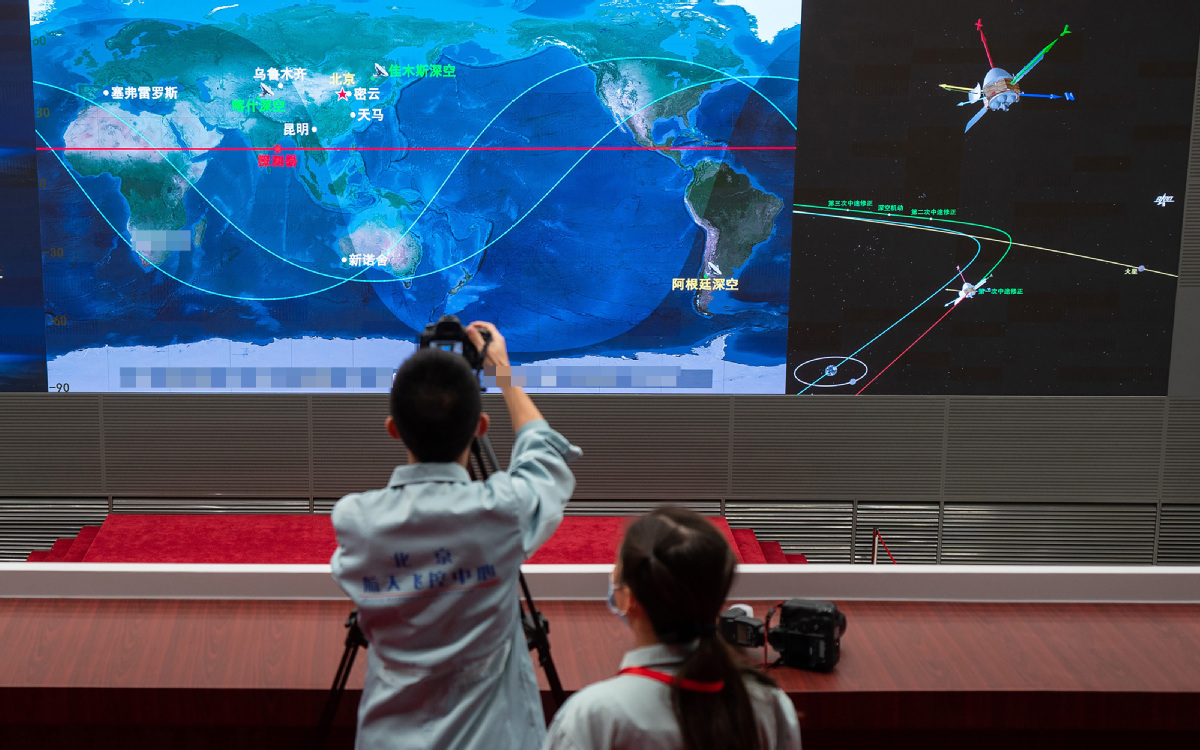Year of struggle and success signals growing strength


High rankings
Last year, China ranked first in four major areas of scientific research in terms of academic activity and influence-one more than in 2019.
The country trailed only the United States, which led in seven fields, according to the Research Fronts 2020 report published by CAS and Clarivate Analytics of the US.
Of the 11 broad research categories, China led in: agricultural science; plant and animal sciences; chemistry and materials science; and mathematics and information science.
The country was also ranked second in: ecological and environmental sciences; physics; and social sciences, including economics and psychology, the report said.
At a publication ceremony for the report, Gao Hongjun, CAS vice-president, said, "China's scientific and technological capability will become the basis for facilitating economic growth, improving people's livelihoods and protecting national security."
However, China lagged behind other scientific powerhouses in clinical medicine and astronomy and astrophysics, where it ranked 12th and eighth respectively. Of the 148 frontier research topics assessed in the report, the US led the world in 79 subjects, while China led in 42.
Bai said China's science and technology sector has many shortcomings that must be overcome.
They include an overreliance on imports for key technologies, lack of ability to make original breakthroughs in basic sciences, and insufficient support for socioeconomic development and national security.
To resolve those issues, the nation's planners envisioned China upholding the central role that innovation plays in modernizing the country and turning science and technology self-reliance into a strategic pillar for national development.
According to the communique of the Fifth Plenary Session of the 19th Central Committee of the Communist Party of China, released in October, the nation's scientific community will focus on tackling the world's scientific frontiers, promoting high-quality economic growth, meeting the country's major needs and safeguarding lives and health.
Those efforts will facilitate more major breakthroughs in core technologies, bolster the country's economic and technological strengths and transform China into a global leader in innovation-one of several objectives to be achieved by 2035, the communique said.
The proposals state that China will launch major research projects in: artificial intelligence; quantum information technology; integrated circuits; life science and health; neural science; aerospace technology; deep-earth and ocean exploration; and other cutting-edge fields.
At a November news briefing, Wang Zhigang, minister of science and technology, said China's socioeconomic development has never depended so heavily on finding new approaches for solutions from science, technology and innovation.
China will continue to expand international cooperation on climate change, public health and energy, as well as scientific policy, research ethics and other topics of global concern, Wang said.
At the same time, China will strengthen intellectual property protection, optimize its legal and policy environment to support research and innovation, and provide more opportunities and convenience for foreign scientists to work in the country, he added.
























